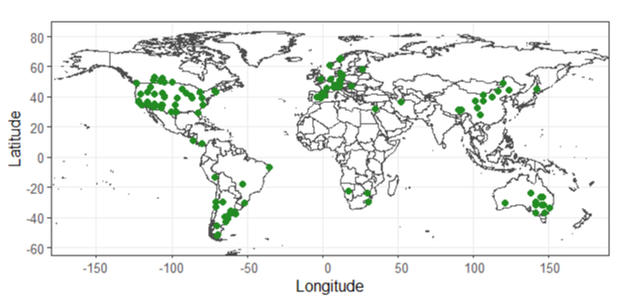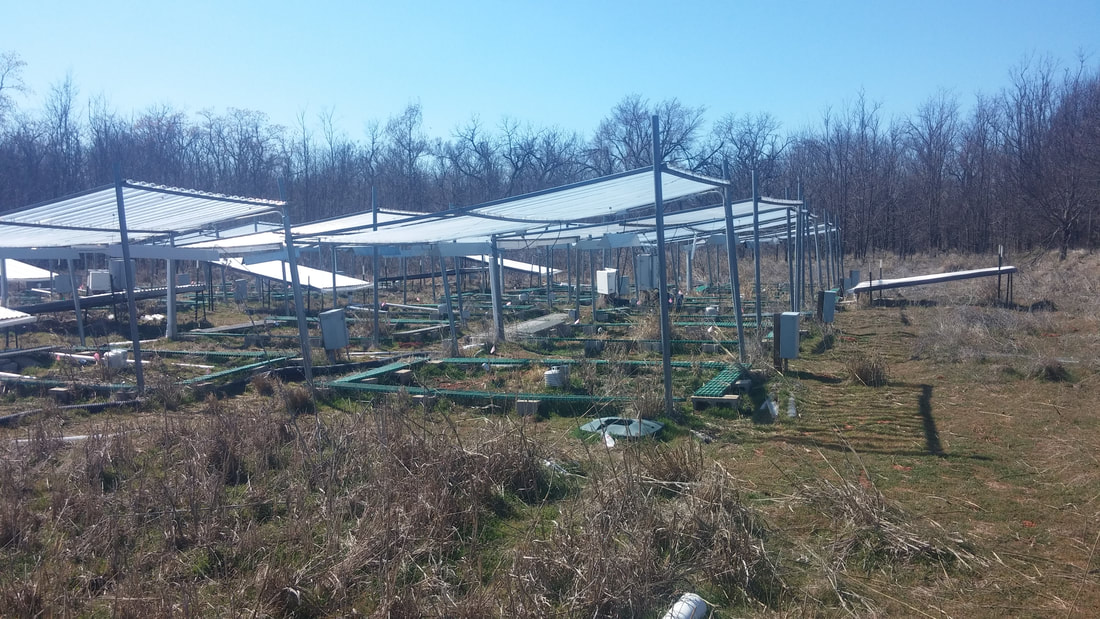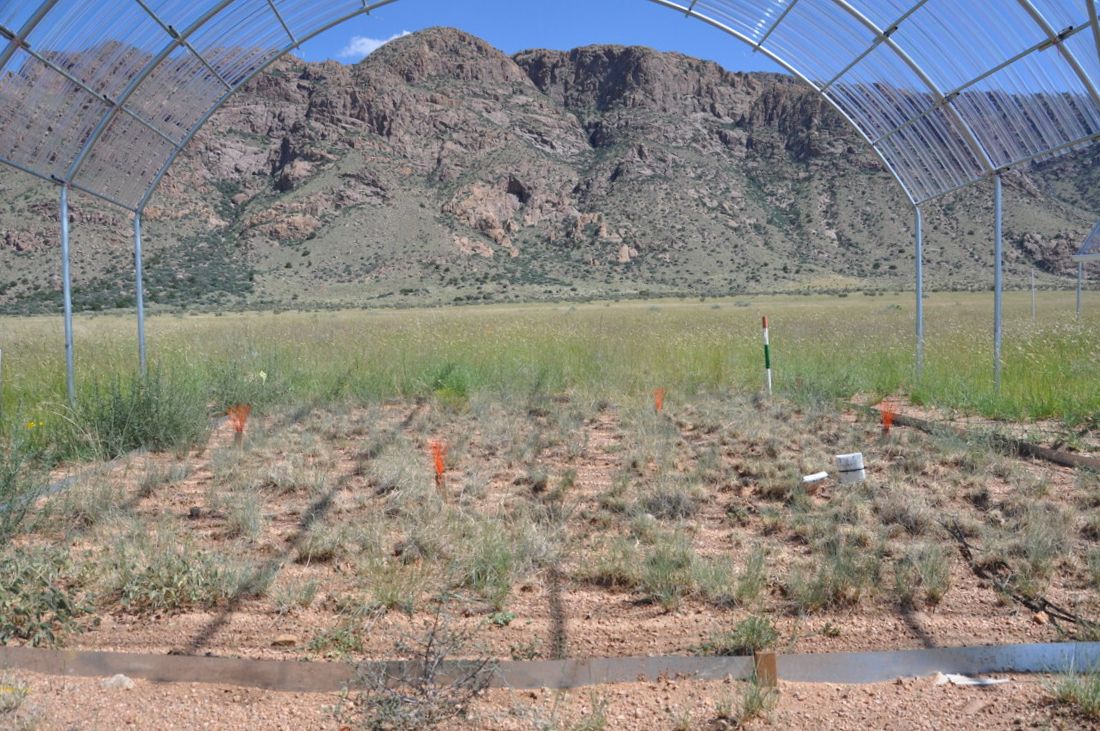Welcome to Drought-Net
|
All ecosystems will be impacted to some extent by climate change, with forecasts for more frequent and severe drought likely to have the greatest impact on terrestrial ecosystems. Terrestrial ecosystems are known to vary dramatically in their responses to drought. However, the mechanistic basis underlying why some ecosystems respond more than others represents a critical knowledge gap, one that limits our ability to project drought impacts at regional and continental scales. To effectively forecast terrestrial ecosystem responses to drought, ecologists must determine the mechanisms underlying ecosystem sensitivity to drought across a range of different ecosystem types, and then improve existing modeling frameworks by incorporating such variation within the context of broader environmental gradients. Traditional site-based approaches cannot provide this knowledge because site-specific experiments are conducted in ways that makes comparisons among ecosystems difficult. Coordinated experimental networks, however, are ideally suited for comparative studies at regional to global scales.
|
Drought-Net activitiesThe Drought-Net Research Coordination Network (RCN) - funded by the US National Science Foundation – is aimed at advancing understanding of how and why terrestrial ecosystem may differ in their sensitivity to drought. The Drought-Net RCN brings together an international cadre of scientists to conduct two complementary research activities:
Synthesis of data from these two activities will be conducted by Drought-Net participants, with the ultimate goal of improving mechanistic understanding of terrestrial ecosystem sensitivity to drought. |
Drought-net membershipDrought-Net membership is open to scientists who are committed to initiating and maintaining an IDE site, registering their existing precipitation manipulation experiment(s) with EEE, and/or furthering network goals in other substantive ways. |




